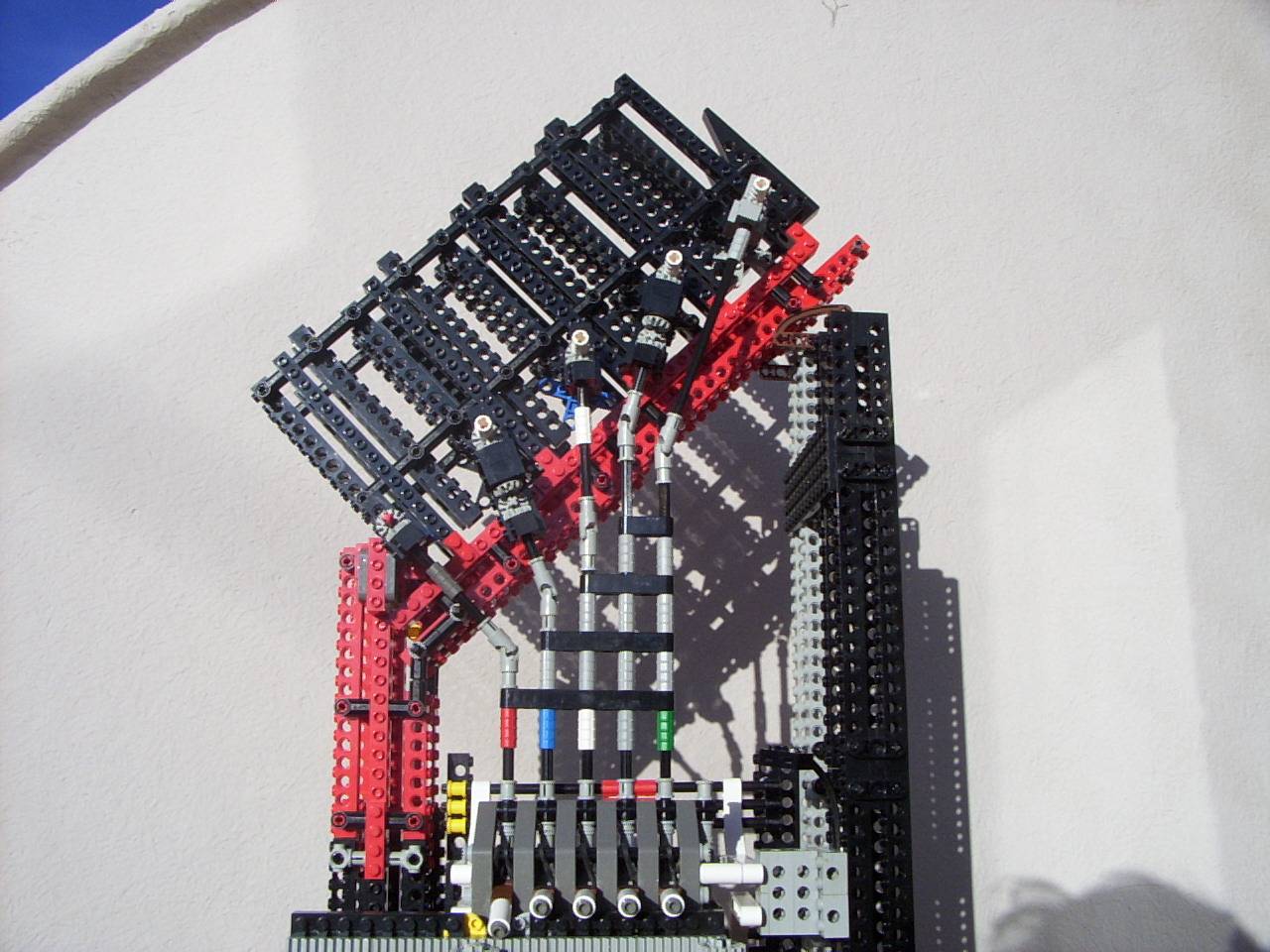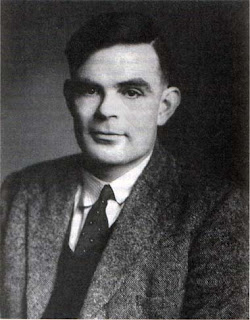Remembering Alan Turing and his ingenious life
2012, AI, Alan Mathison Turing, Alan Turing, Artificial Intelligence, Blog, Computer, Computer Science, Events, PC, The Man Who Knew Too Much, Turing Machine, Turing Year |
| Alan Turing (23 June 1912 – 7 June 1954) |
We are currently living in a world among computers. Past, was a time where there existed only humans as the brains of the planet. But today, the world is changing, thanks to the evolution of computers and science. We are living in a world, much easier than before, where there is less paperwork and hardwork for man. We are currently, living in what could be termed, as the computer era. From Abacus by the Mesopotamians and Chinese to the evolution of modern PCs, we have developed way beyond anyone could imagine. Computers have immense importance in today's world.
Of course, you all know about Charles Babbage, the father of the computer, where he first put forward the concept of a computer. His machines, the Difference engine, and the Analytical Engine has paved way for the start of the computer generation. But it was another man, who actually simplified and showed in reality, the architecture of the modern computers or PCs. His name, may not be known to many of you, who're reading this since from what I've read so far, the textbooks less mention about him and his works. His name is Alan Turing, widely known as the Father of the modern computers and computer science.
From what I recall from my memory, Alan was born in London, on 23rd June, 1912. His father worked in India. His mother lived with Alan in London, away from his father and thus the separation did had an impact on his behaviours. Alan was a genious, and he was fascinatingly skilled in Mathematics. As he grew, he could solve all the advanced and complex problems even before counting 10 and amazed all his mates. From little age onward, he tried experimenting on several things including the concept of the modern PC. The Turing Machine, which is one among his most famous inventions, was the first one of its kind, which could calculate all mathematical problems, store custom programs and modify and delete them whenever the user wanted, much like the modern PCs. Thus, it paved way for the creating of the modern PCs.
Turing Machine is not just what he's famous for.During the WWII, he had been working at the Government Code and Cypher School. The Germans used to transfer messages and target coordinates using special ciphers known as 'Enigma' ciphers. This tired the British as they never had the tiniest of hint on what the German were planning. Thus, Britain asked Alan to invent a machine to decipher the Enigma codes. Alan, with the other workers at the GCCS and many mathematicians, finally built a machine that could decrypt the Enigma codes, which was called the Colossus. Colossus helped Britain to plan their military and counterattack the German forces. Thus, it was the Colossus that saved Britain from a major destruction during the World War II.
 |
| The Turing Machine. |
Alan got many awards and honours for his notable works. He was one of the key figures behind the decryption team during the WWII. But his death still remains a clueless mystery. He was found dead on 8th of June, 1954 and nearby his body, laid a half-eaten Apple (If you think a little bit deeper, you'll notice that its the logo of Apple :-) ). The post-mortem showed that the cause of his death was Cyanide Poisoning. Many claim he committed suicide but many other believe there is still hidden secrets behind his death. It was too early for him to die and the world lost another key personality.
I used to read about him from each and every single piece of book I could. Now, I can recall only this much from my memory. Alan's death was what intrigued me the most. I still don't get the reason why he committed suicide (if he did). And I was always curious to know more and more about him. Even if there's Charles Babbage, you must not forget Alan Turing for his inventions marked the beginning of modern PCs. With the evolution of computers day by day, the world still remembers Alan Turing. You must've noticed the fancy google doodle today, cool wasn't it? For his remembrance, the year 2012 has been marked as the 'Year of the Machines' or 'Year of Computers' or simply the 'Turing Year'.
If you want to know more about Alan Turing, you can checkout the Wikipedia page here. Also, you can read David Leavitt's The Man Who Knew Too Much, the Biography of Alan Turing.
For all the magnificent works you've done and for all the magics and inventions you've brought us, we owe you a lot Alan. Time will go on but we'll remember you always even in the last times of the era.

" I believe that at the end of the century the use of words and general educated opinion will have altered so much that one will be able to speak of machines thinking without expecting to be contradicted. "
- Alan Mathison Turing.










